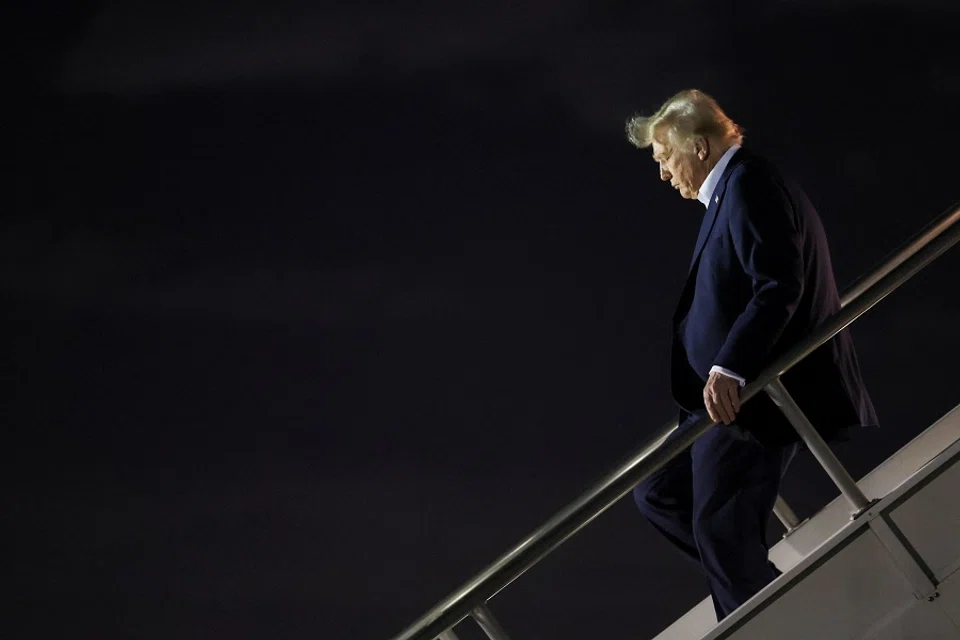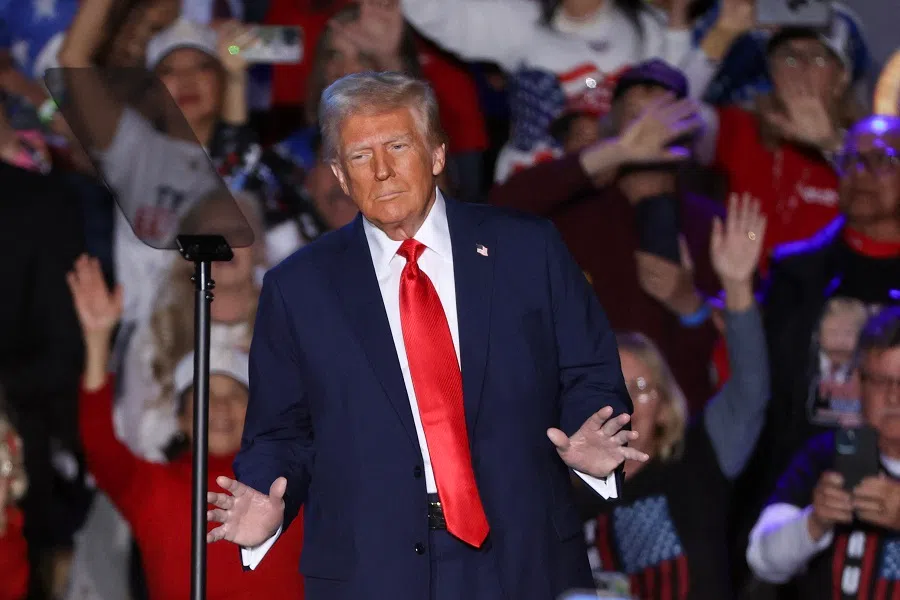Will Trump 2.0 usher in a new age of imperialism?
Trump’s invocation of exceptionalism, military predominance and territorial aggrandisement closely fits the definition of imperialism, observes Russian academic Artyom Lukin. Furthermore, whether Moscow and Beijing are truly prepared to present a united front against “Pax Trumpica” remains to be seen.

Vladimir Putin may be Russia’s almighty czar, and Xi Jinping, China’s formidable emperor. Still, both Russians and Chinese — let alone citizens of other countries — are well aware that the president of the US remains the most powerful man on earth. In Moscow and Beijing, many important — and less important — figures are currently parsing the inaugural statements and actions of the 47th US president, Donald J. Trump.
A more expansionist stance
Trump is often portrayed as a classic American isolationist, intent on withdrawing the US from global affairs. However, his inaugural address does not come across as the manifesto of an inward-looking national leader. On the contrary, Trump’s Capitol speech, and his initial actions in the White House, carry palpable undertones suggesting that America might adopt a more assertive and expansive — or even expansionist — geopolitical stance.
... consider how the inaugural speech refers to two of the previous American presidents: William Mckinley and Theodore Roosevelt. Both led the US during the height of classical imperialism.
Trump leaves no doubt he sees America as an “exceptional” nation. Indeed, he said: “America will soon be greater, stronger, and far more exceptional than ever before…We will be a nation like no other, full of compassion, courage and exceptionalism. Our power will stop all wars and bring a new spirit of unity to a world that has been angry, violent and totally unpredictable. ” He goes on to call the US “history’s greatest civilisation”.
Even though Trump made a point that American greatness and exceptionalism should benefit all of humanity, there were other, more ambivalent, messages in his inaugural speech. “The United States will once again consider itself a growing nation — one that increases our wealth, expands our territory, builds our cities, raises our expectations and carries our flag into new and beautiful horizons.”

The reference to territorial expansion is especially interesting, given Trump’s stated desire to retake the Panama Canal, annex Greenland and make Canada US territory. These and other geopolitical aspirations of Trump’s America will be backed up by building “the strongest military the world has ever seen”.
New era of US imperialism?
Trump’s invocation of exceptionalism, military predominance and territorial aggrandisement closely fits the definition of imperialism. If you are still not convinced, consider how the inaugural speech refers to two of the previous American presidents: William Mckinley and Theodore Roosevelt. Both led the US during the height of classical imperialism.
The Western great powers, plus Russia and Japan, were energetically competing for territorial acquisitions and spheres of influence. Under Mckinley’s leadership, the US carried out its first overseas annexations in 1898, taking Hawaii Islands, the Philippines, Guam and Puerto Rico.
His successor, Theodore Roosevelt, is known for his “Big Stick” diplomacy (“speak softly and carry a big stick”). In particular, the Roosevelt Corollary to the Monroe Doctrine asserted the right of the US to intervene in Latin American countries. It was also under Roosevelt’s leadership that the US effectively carved Panama out of Colombia, securing full control over the future canal. Furthermore, Roosevelt oversaw an ambitious naval buildup, believing that a powerful navy was essential for projecting American power on a global scale.
... new imperialism does not seek to directly conquer and rule all the peoples and lands it can subjugate. Instead, it focuses on controlling the most valuable pieces of geopolitical real estate...
Of course, aside from being a great power imperialist, Theodore Roosevelt was also an outstanding peacemaker. His mediation efforts helped bring an end to the Russo-Japanese War of 1904–05, earning him the Nobel Peace Prize. Could Donald Trump achieve similar success as a mediator? Could he, for instance, help end the war in Ukraine? The ambition is certainly there: “My proudest legacy will be that of a peacemaker and unifier. That’s what I want to be: a peacemaker and a unifier.”
In a way, Trump’s brand of imperialism is even more ambitious than that of McKinley and Roosevelt. He wields an array of awe-inspiring technologies, ranging from space systems to artificial intelligence. The proposed annexation of Greenland may merely be a prelude to making Mars an American colony. Initiatives like the US$500 billion Stargate project—costing more than the entire annual revenue of the Russian government — are designed to ensure America’s dominance in what could be the most important technology humanity has ever invented.
Securing strategic assets under ‘new imperialism’
Unlike the empire builders of the ancient past, new imperialism does not seek to directly conquer and rule all the peoples and lands it can subjugate. Instead, it focuses on controlling the most valuable pieces of geopolitical real estate—such as strategic waterways and islands — and achieving dominance in the “global commons” including the oceans, space and cyberspace.
All imperialists — whether Genghis Khan, Theodore Roosevelt or Stalin — share a defining characteristic: what Hans Morgenthau, the founder of political realism, called animus dominandi — the insatiable desire for power and domination. They relentlessly expand the boundaries of their domains, pursuing new annexations and conquests until they meet an equal force to halt their ambitions.
... whether Moscow and Beijing are truly prepared to present a united front against “Pax Trumpica” remains to be seen.

There is little reason to believe that Donald Trump and his allied cohort of capitalist techno-barons are any different in their quest for power and glory. Having consolidated their influence within the US, they now seek a larger stage to enact their ambitions and inflate their egos.
There are only two powers in the contemporary world theoretically capable of countering new American imperialism: Russia and China. It is hardly a coincidence that Putin and Xi held a televised video call just hours after Trump’s inauguration. However, whether Moscow and Beijing are truly prepared to present a united front against “Pax Trumpica” remains to be seen.
What is clear, however, is that Trumpian imperialism will at least not be boring. As one young Chinese man recently told me, “Many Chinese like Trump because Trump is fun.”
Okay, then. Let the fun begin.





